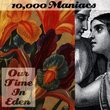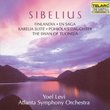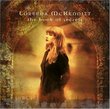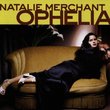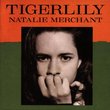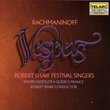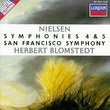| All Artists: Wolfgang Amadeus Mozart, Charles Mackerras, Prague Chamber Orchestra Title: Mozart: Eine Kleine Nachtmusik; Posthorn Serenade Members Wishing: 0 Total Copies: 0 Label: Telarc Release Date: 7/22/2003 Genre: Classical Styles: Chamber Music, Forms & Genres, Serenades & Divertimentos, Historical Periods, Classical (c.1770-1830) Number of Discs: 1 SwapaCD Credits: 1 UPCs: 089408010828, 020831178280 |
Search - Wolfgang Amadeus Mozart, Charles Mackerras, Prague Chamber Orchestra :: Mozart: Eine Kleine Nachtmusik; Posthorn Serenade
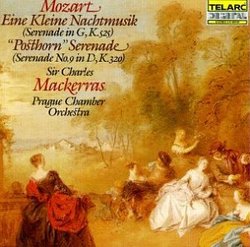 | Wolfgang Amadeus Mozart, Charles Mackerras, Prague Chamber Orchestra Mozart: Eine Kleine Nachtmusik; Posthorn Serenade Genre: Classical
The Prague Chamber Orchestra contributes some very good string playing to this Mozart reading by Sir Charles Mackerras. The approach is modern but well informed, with clean, light, agile, and luminous results. Mackerras ob... more » |
Larger Image |
CD DetailsSynopsis
Amazon.com The Prague Chamber Orchestra contributes some very good string playing to this Mozart reading by Sir Charles Mackerras. The approach is modern but well informed, with clean, light, agile, and luminous results. Mackerras observes the repeats (including that of the first movement recapitulation) and chooses excellent tempos. The Romance is especially lovely. Telarc's recording yields a fairly realistic concert-hall perspective, but the distant pickup and reverberation tend to muddy the texture a little. The coupling is an excellent account of the Posthorn Serenade. --Ted Libbey Similarly Requested CDs
|
CD ReviewsVery Underrated R. M. Rogers | United States | 05/10/2005 (5 out of 5 stars) "I must politely disagree with the previous reviewer's interpretation of the recording's sound quality, which I found to be very crisp. The distant pickup in my view yields a lovely concert hall atmosphere that is missing on so many other recordings of this piece. I guess it is a matter of personal taste. What I find most special is Mackerras interpretation of the music, choosing lively tempos for the allegros, and steady andantes that don't drag too slowly. As in Mozart's time, all repeats are observed, giving the famous first movement a length of just over eight minutes (when the music is that good, you don't want it to end). The Posthorn Serenade is also excellent. I fear that because of the sheer number of Eine Kleine recordings, this superb performance is often overlooked. If you like chamber music with a concert hall sound, this is the recording to purchase." Disappointing Sound Quality...Very Distant R. M. Rogers | 09/29/2003 (3 out of 5 stars) "Mozart's serenades have become some of my very favorite classical pieces, so I was especially disappointed with the "distant pickup and reverberation" as the editorial reviewer describes above. Telarc is supposed to have such great sound quality, but not here...it sounds as if the orchestra is a block away. If your preference is modern instruments (as with Mackerras and the PCO, the two-disc set of four Mozart serenades by Marriner and ASMF has far superior sound, despite the fact that they are analog recordings (digitally remastered) from the mid-80's. Sound quality is bright and crisp with a well-defined "stage presence" as if the orchestra is right there in your room. If your preference is period instruments, Manze with the English Concert have just released (Sep 03) a new CD "Night Music", a superb digital recording on the Harmonia Mundi label, which features two of his great serenades: Eine Kleine Nachtmusik and Seranata Notturna, along with other fine Mozart compositions that Manze considered to fit within the theme of night music. Both of these are far superior to the poor lackluster sound on this disc by Telarc." Mediocre Mozart Performances Daniel Lelchuk | NH, USA | 09/13/2006 (3 out of 5 stars) "This recording of two great serenades of Mozart is unfortunately average at best. The playing, especially in the "Posthorn", is slightly drab. The running sixteenth notes are quite hard to discern, especially when the same note is being repeated for a number of bars. Part of the the problem is the recording sound-- the tone of the orchestra is a bit too blended, bass-heavy, and balanced away from the winds and brass. Another point with which I take issue is that of the style. I find that the amount of vibrato differs greatly between oboe and flute for example, where the oboe is using quite a lot, and the flute barely any. Also, the grace notes seem rushed and barely audible, while they should be quite present, as they are not so common.
In essence, this is an average recording, and one that would seem to be fine to someone who has not heard, for example, Levine and the Vienna Philharmonic (my favorite). I cannot see any reason why one would buy this recording over one of more repute and quality, both from conductor and orchestra (Levine w/VPO, Bohm w/BPO, etc.)." |

 Track Listings (11) - Disc #1
Track Listings (11) - Disc #1

